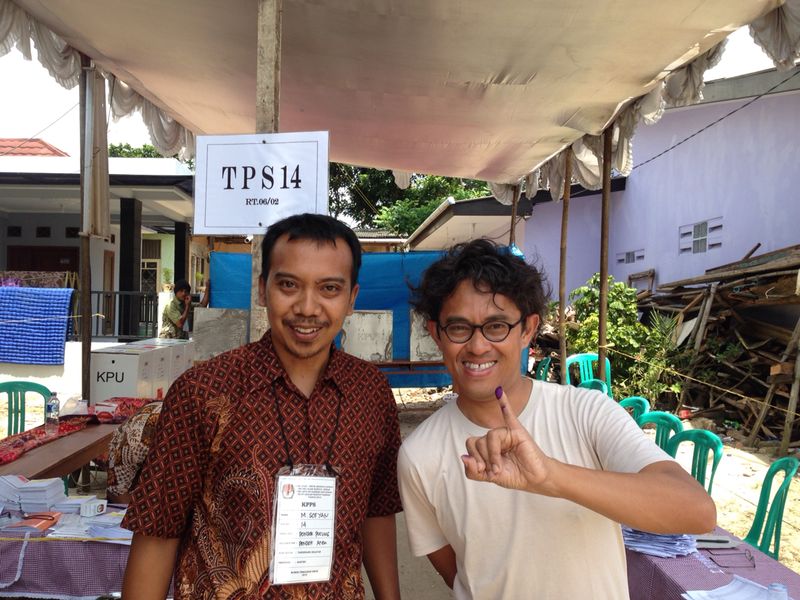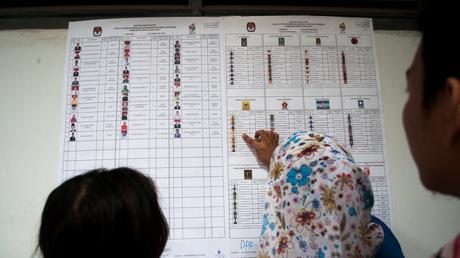“The most mainstream activity today is to vote and to upload your inked-finger on social media!” : Quote spread on social media channels during voting day, April 9.
Election day 2014 - known as “pemilu” - was good fun for many voters, who celebrated democracy with floods of tweets and Facebook posts. In ballot stations the atmosphere was vibrant and lively.
Voters, especially the younger ones of the internet-savvy generation, took selfie-pictures in front of the ballot stations - sometimes with the staffers - swiftly updating their status just a few minutes after exercising their right to vote. Hashtag #2014 became a trending topic on Twitter as users simultaneously shared pictures, comments and predictions throughout the day. By yesterday, many social media users uploaded their purple-colored finger on Twitter, Facebook and Path – the three most popular social media platforms in Indonesia with approximately 65 million total users – proudly displaying their support for the democratization process.
Despite the complexity of the voting system - with people voting on candidates for national, provincial and district parliaments, plus the regional representative council - the process itself was transformed as a cool and fun activity in the eyes of young voters. Many resisted the historical tendancy of unhappy or exasperated Indonesian voters to abstain or vote informally.
“Abstain? No way! Oh come on, today you have to vote, you have to show your political participation!” said Ita Febriany, a 19 year old college student in Makassar, proudly showing her inked-finger after voting for her representatives. Another voter shared her experience taking the initiative to discuss her choices with a political consultant a day out from the election in order to get more comprehensive information about the political parties’ programs and visions, as well as the background of the candidates.

The National Election Commission publicly stated that there were 153,357,307 registered voters. Significantly, early estimations showed that the number of voters who abstained or didn't vote at all would decrease, from 29 per cent in 2009 to 25 per cent in 2014. It appears as though the numerous 'self-initiative' campaigns that ran in the months preceding this weeks poll, many of which were lead by non-party affiliated public figures and actors, had generated significant voter enthusiasm.
For most Indonesian people, the election is a “Pesta Demokrasi”, a celebration for democracy. On the streets, the spirit of “gotong-royong” - of communality and working together - was strongly felt by the people.
Ballot stations were built with this spirit, and after the voting was closed at 1PM, people voluntarily stayed on to watch the counting process. Many shouted in excitement as the staffers opened and announced results.
In Jakarta, Surabaya, Makassar and other big cities, the voting day - a national holiday - brought people together, gathering as a community. “I flew back to Jakarta (from Sumba, West Nusa Tenggara) to vote. It’s a good feeling. Once in every five years!” said film director Riri Riza.
In villages and rural areas the spirit of communal celebration was still running high when the ballot stations were packed away at midnight, with audiences gathering to watch the whole voting process from start to finish.
Staffers in ballot stations worked hand in hand with the locals throughout the day; people brought drinks and snacks for those involved while children played amongst the crowds. To add to the festive atmosphere, local businesses participated offered special discounts for customers. Coffee shops, restaurants, cinemas, theme parks and even cosmetic outlets provided offers such as “buy one, get one free if you show your inked-finger”.




